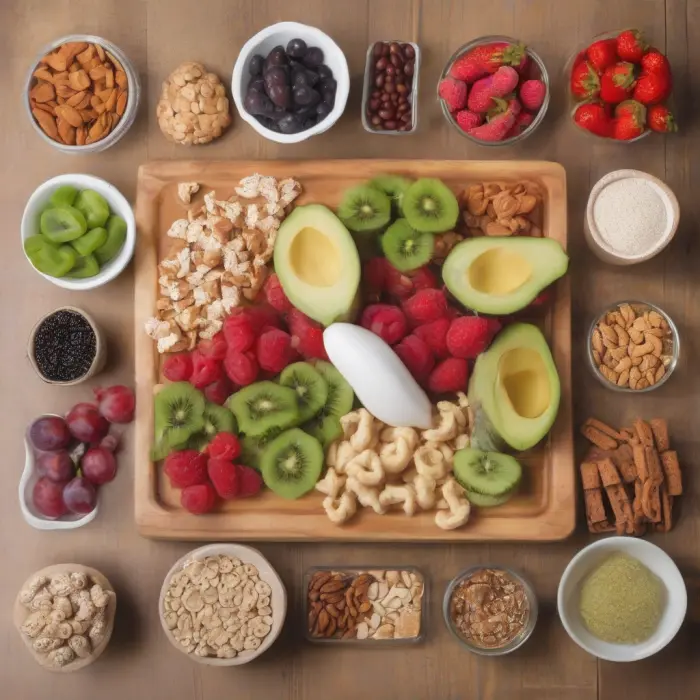The Connection Between Emotional Well‑being and Digestive Health
Emotions and digestion are more intertwined than many people realize. The “gut–brain axis” describes a two‑way conversation between the nervous system, the digestive tract, the immune system, and the trillions of microbes in the intestine. When this dialogue is balanced, we tend to digest food more comfortably and feel more emotionally steady. When it is disrupted—by stress, poor sleep, illness, or diet—both mood and gut symptoms can flare.
What Is the Gut–Brain Axis?
The gut–brain axis is a network of pathways that allows the brain and digestive system to communicate in real time. It includes:
- Central nervous system (CNS): The brain and spinal cord process emotions, thoughts, and stress responses.
- Enteric nervous system (ENS): Sometimes called the “second brain,” this vast nerve network embedded in the gut wall regulates motility, secretion, and blood flow.
- Vagus nerve: A major highway transmitting signals in both directions; it influences heart rate variability, inflammation, and digestive function.
- Hypothalamic–pituitary–adrenal (HPA) axis: Orchestrates the stress response via hormones such as cortisol.
- Immune system: Gut‑associated lymphoid tissue samples intestinal contents and helps maintain tolerance versus inflammation.
- Microbiome: Trillions of bacteria, viruses, and fungi that help digest food, produce metabolites (like short‑chain fatty acids), and interact with nerves and immunity.
These components operate as a loop: thoughts and emotions influence gut activity, and signals arising from the gut shape mood, attention, and stress resilience.
How Emotions Influence Digestion
When we experience stress or anxiety, the body shifts toward a “fight‑or‑flight” state. This has predictable effects on the gut:
- Motility changes: Stress can speed transit (causing cramping, urgency, or diarrhea) or slow it (leading to bloating and constipation). Different people—and even the same person at different times—may experience opposite effects.
- Secretion and sensitivity: Stress hormones and corticotropin‑releasing factors increase stomach acid in some people and heighten visceral sensitivity, making normal sensations feel painful.
- Barrier function: Stress can loosen tight junctions in the intestinal lining, increasing permeability. This may allow more immune activation, which can amplify discomfort.
- Microbiome shifts: Chronic stress alters microbial composition and diversity, potentially favoring species linked to inflammation or gas production.
- Behavioral ripple effects: Stress often disrupts sleep, appetite, and eating pace, and may increase alcohol/caffeine intake—all of which affect digestion.
These changes help explain why emotionally intense periods can trigger reflux, indigestion, or irritable bowel symptoms, and why calming practices often bring relief.
How the Gut Shapes Mood and Mental Clarity
Signals from the digestive tract influence cognition and emotion through multiple channels:
- Neurotransmitter and hormone signaling: Most serotonin in the body is made by gut cells; microbes can influence its production and availability. Gut‑derived peptides (like GLP‑1 and PYY) also signal satiety and affect reward circuits.
- Immune–inflammatory pathways: Gut inflammation and microbial products can influence systemic cytokines, which affect brain function and mood.
- Metabolites from microbes: Short‑chain fatty acids (such as butyrate) support the intestinal barrier, modulate inflammation, and may influence brain plasticity and stress responses.
- Vagal signaling: Signals from the gut to the brain via the vagus nerve can dampen stress responses and shape emotional regulation.
- Nutrient absorption: Poor digestion or malabsorption can contribute to fatigue, brain fog, or low mood.
When the gut is unsettled, it can send “alarm” signals that the brain interprets as discomfort, unease, or anxiety. Improving gut health often improves emotional well‑being—and vice versa.
Conditions at the Intersection of Mood and Digestion
- Irritable bowel syndrome (IBS): A disorder of gut–brain interaction characterized by altered motility, heightened sensitivity, and symptom flares linked to stress. Psychological therapies such as cognitive‑behavioral therapy (CBT) and gut‑directed hypnotherapy can be effective alongside dietary strategies.
- Functional dyspepsia: Upper‑abdominal discomfort, early fullness, or nausea often worsened by stress and fast eating.
- Gastroesophageal reflux (GERD): Stress may increase symptom perception and alter reflux patterns.
- Inflammatory bowel disease (IBD): Emotional stress does not cause IBD, but can worsen symptom burden and quality of life; comprehensive care typically includes psychological support.
- Post‑infection syndromes: After a gastrointestinal infection, altered microbiota and heightened gut sensitivity can persist and interact with anxiety or hypervigilance.
Everyday Signs Your Gut–Brain Axis Needs Care
- Frequent bloating, cramping, or irregular bowel habits during stressful weeks
- Reflux or indigestion that worsens with worry, hurried meals, or poor sleep
- Food fear or avoidance developing around symptom flares
- Fatigue, brain fog, or low mood accompanying digestive symptoms
Evidence‑Informed Strategies to Support Both Mood and Digestion
Mind–Body Practices
- Diaphragmatic breathing: 5–10 minutes, 1–2 times daily. Slow nasal inhale to 4–5 counts, relaxed exhale to 6–8 counts. This stimulates the vagus nerve and can reduce urgency and cramping.
- Mindfulness or meditation: 10–20 minutes most days can reduce symptom anxiety and pain amplification.
- Gut‑directed hypnotherapy: Structured scripts targeting gut sensations; strong evidence for IBS symptom reduction.
- Cognitive‑behavioral therapy: Helps reframe catastrophic thoughts, reduce avoidance, and improve coping.
- Gentle movement: Walking, yoga, or tai chi support motility, sleep, and stress resilience.
Sleep and Daily Rhythm
- Aim for consistent bed and wake times; a regular circadian rhythm supports regular bowel function.
- Limit large, late meals and alcohol close to bedtime to reduce reflux and dyspepsia.
Nutrition and Eating Habits
- Eat slowly and regularly: Chew thoroughly, pause between bites, and allow 10–20 minutes for meals; this improves signaling between the gut and brain.
- Fiber variety: Most people benefit from more plant diversity (vegetables, fruits, legumes, whole grains, nuts, seeds). Increase gradually to avoid gas and bloating.
- Prebiotics and fermented foods: Foods like onions, garlic, asparagus, bananas (prebiotic fibers) and yogurt, kefir, sauerkraut, kimchi (fermented) can support microbial diversity. If you have IBS, introduce slowly—some prebiotics can aggravate symptoms.
- Low‑FODMAP trial: For persistent IBS symptoms, a short‑term, structured low‑FODMAP diet under guidance can help identify triggers. It should be followed by a careful reintroduction phase.
- Moderate stimulants and irritants: Caffeine, alcohol, very spicy or high‑fat meals can trigger symptoms in some people; track your personal patterns.
- Hydration: Adequate fluids support motility, especially with higher fiber intake.
Supplements and Medications (General Considerations)
- Probiotics: Effects are strain‑specific and mixed; some people notice benefit, others do not. Consider a time‑limited trial and monitor symptoms.
- Psychotropic medications: Low‑dose tricyclics or SSRIs/SNRIs may reduce IBS pain and improve global symptoms for some; discuss risks and benefits with a clinician.
- NSAIDs and certain antibiotics: Can irritate the gut or alter the microbiome; use only as needed and as prescribed.
Social Connection and Meaning
- Loneliness and chronic stress sensitize the gut–brain axis. Regular connection with supportive people, purposeful activities, and time in nature are protective.
A Simple Daily Routine to Try
- Upon waking: 5 minutes of diaphragmatic breathing or gentle stretching.
- Breakfast and lunch: Unhurried meals with a focus on whole foods; put down devices while eating.
- Midday: 10–20 minute walk to support motility and mood.
- Afternoon: Brief mindfulness break; hydrate.
- Evening: Lighter dinner, limit alcohol; wind‑down routine with low light and no screens for 30–60 minutes before bed.
When to Seek Professional Help
Most stress‑related digestive symptoms are manageable, but red flags warrant medical evaluation:
- Unintentional weight loss, persistent fever, or night sweats
- Blood in stool, black/tarry stools, or persistent vomiting
- Severe or progressively worsening abdominal pain
- Difficulty swallowing or food getting stuck
- Iron‑deficiency anemia or unexplained fatigue
- New bowel habit changes after age 50 or a strong family history of colorectal cancer or IBD
If anxiety, low mood, or trauma‑related symptoms are frequent or interfering with daily life, connect with a mental health professional—addressing emotional well‑being often improves digestive symptoms as well.
Key Takeaways
- The gut and brain are in constant conversation; stress and emotions can meaningfully alter digestion, and gut signals can shape mood.
- Supporting vagal tone, sleep, movement, and eating patterns benefits both emotional health and GI comfort.
- Tailored strategies—such as mindfulness, CBT or hypnotherapy, and individualized nutrition—often work best.
- Seek medical care for red‑flag symptoms or if self‑care strategies are not improving your condition.
This information is educational and not a substitute for personalized medical advice. Consult your healthcare professional for guidance specific to you.










